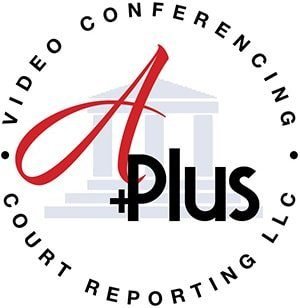The remote coverage of court cases can be a very challenging task, but thanks to the new technologies and availability of various sources it is now not just possible but quite accurate and successful. In this article, we are going to discuss five of the best ways of holding court case reporting from a distance offering legal experts and journalists valuable tips.
Making Use of Live Broadcasting Technology
During remote coverage of court cases, journalists and lawyers must rely on live-streaming technologies. With this technology, reporters can report the events as they unfold and ensure that people are kept updated on what takes place. Through live streaming, journalists can capture the nuances of courtroom interactions and verdict deliveries, hence ensuring accurate reporting. In addition to this approach, it enables some level of transparency that promotes public faith in the judiciary. The increasing reach of live streaming platforms also helps reporters to educate the public through interesting and educational coverage of court cases.
Obtaining Audio Recordings and Court Transcripts
One of the main principles behind remote coverage includes access to audio recordings and court transcripts. These tools allow journalists and legal professionals to add more reliable, fact-based materials to their reporting. Courts create detailed accounts of all that happened such as the witness testimonies, attorneys’ arguments, and judgments made by judges from the transcripts. They are a very priceless tool for in-depth reporting. On a parallel note, the tone and subtlety of courtroom conversations come out in audio recording enabling the audience to understand proceedings better. Using such resources, journalists can ensure that their reporting is very helpful for the educated public debate about legal issues. Audio recordings and court transcripts play a very vital role in the way journalists remain true to their integrity, as well as in case reports that can be trusted.

Court Records Accessible from a Distance
An important element of distance reporting on court cases is the remote access to its records. By taking advantage of digital platforms and specialized databases, journalists as well as legal practitioners can have all the up-to-date information required for their reporting. With the use of remote access tools, reporters can understand the ongoing proceedings well by studying case histories, going over legal documents, and analyzing earlier rulings. In addition, the outsourced access to court information helps journalists validate and check facts, ensuring the accuracy of their reportage. By enabling remote access to court data, the journalists are provided with the opportunity to report more on complex legal debates and at a greater depth engage in an educated discourse among the population.
Online Courtroom Views
In legal reporting, virtual courtroom observations have become routine since the lawyers and journalists can observe the procedure up close while also remaining away from the venue. The use of current technology and creative platforms allows individuals to receive real-time courtroom interactions, in the way judicially deliver verdicts. This modern approach encourages disclosure and information that is true, and comprehensive reporting feeds into the development of public confidence in the law. By adopting virtual courtroom observations, the reporters have an opportunity to enrich the people’s knowledge of legal matters. It can be through the captivating coverage that encapsulates the modern-day cases with intricacies and leads to an informed public debate.
Interviewing Experts and Important Players
Remote court case coverage can be significantly amplified by furnishing the journalists as well as the legal professionals with convincing and profound interviews of critical players. Reporters also have direct access to the key players ranging from witnesses, plaintiffs, and defendants down the line of legal forerunners so they can offer anecdotes of their personal experience along with expert elucubration. This method helps to enhance the level and scope of the reporting. Alongside providing unique perspectives on the problem, these interviews also provide viewers with background and clarity that help them understand how the law works from a higher level. Further, asking incisive questions and debating thoroughly allows journalists to reveal critical details and readings that improve their reporting while also informing the public on complex legal matters.

In summary
Legal reporting from a distance requires a lot of creativity, hard thinking, and accuracy. Court proceedings can be covered remotely by journalists and legal professionals who rely on technologies such as live streaming, receiving court transcripts, remote access to court records transactions and virtually observing a virtual room of these courts or conducting separate interviews.












